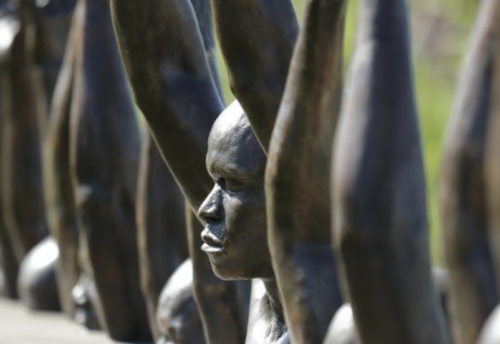
Jeffrey D. Pennington, Ph.D.
Sr. Pastor
First Baptist Church, Smyrna, GA
May 1, 2020
The purpose of this article is to argue that a non-discrimination ordinance (NDO) for the City of Smyrna should be rejected because it does not stand the test of common sense. Such an ordinance is not good policy for Smyrna because, at its core, it is not good policy. I will expose its fatal flaws by showing how it is built on an inadequate definition of discrimination. Second, I will argue that it is impossible for the ordinance to accomplish its stated purpose of protecting all citizens from discrimination. I will conclude with a real-life tension that is resolved with a real-life solution.
A lacking definition. It is easy to understand the power of reinforcement. When a good lesson is given, reinforcement helps it stick. But when the wrong things are reinforced, long- lasting problems are hard to erase. The negative side of reinforcement is readily seen in the way that an NDO defines “discrimination.” The goal of said ordinance is to free all persons from all forms of discrimination. But by definition, not all forms of discrimination require prohibition.
It is true that an acceptable definition of discrimination is the unjust treatment of different categories of people. But another acceptable definition for discrimination is the recognition of the difference between one thing or another. Decisions that we make on any given day require the use of sound discrimination. Some discrimination is inconsequential. Only McDonald’s and Burger King mind if I discriminately choose a Big Mac instead of a Whopper. But other kinds of discrimination are healthy. When I discriminately make a correct choice from a stack of resumes, the judgment I apply leads to a good result not only for the candidate selected, but for the hiring organization (in my case, the church). When I select a responsible babysitter for my children, not only are they kept safe, but my wife and I get to enjoy our date.
No one arguing for an NDO is troubled by what I state above, but he or she should be. The language used to define “discrimination” in the NDO does not serve the cause with clarity. Instead, the language is cloudy and confusing, and thus subject to interpretation. When an ordinance requires a word key to define its core principle, its complexity makes it suspect. It has no solid premise and is impossible to enforce with any semblance of consistency.
The matter is too weighty for this to be the case. Due to the various ways it is interpreted, instead of protecting all persons from invidious discrimination with an ordinance that can be clearly and objectively enforced, the opposite will happen. Everyone will be threatened by it.
All persons are better protected when a non-discrimination ordinance does not exist.
Another glaring weakness of an NDO is that it claims to protect all persons, but there is no way that this promise can be fulfilled. Assuming everyone who is vulnerable is included (which is in itself an impossibility), what happens when the convictions of those who are protected clash? What is discrimination to one person is merely disagreement to another – even when both are acting with goodwill.
The stage will be set when, as in the Jack Phillips case, a same-sex couple enters a Christian-owned bakery. The couple will expect for their sexual behavior to be affirmed with a custom-designed wedding cake celebrating their union. Yet, their request for a custom cake may conflict with the baker’s religious conviction. Both parties stated are supposedly protected in this ordinance that protects all people. Which conviction trumps the other? NDOs offer no just resolution to this issue. Subjective means will be used by leaders to reach a decision, which means the decision will be based on the decision maker’s preference or bias. Judges will no longer apply the objective law, but instead will impose their own policy preferences. No one will feel satisfied when someone is inevitably victimized, not by the conflicting party, and not even by the judge, but by the ordinance that channeled the issue into a courtroom. Issues like these are most fairly resolved when existing laws are determined to be enough and no such ordinance exists.
This ordinance will not deliver on its promise to promote fairness. Instead, it will cause situations to worsen. Girls’ and boys’ athletics will lose their integrity, for the novel concept of “gender identity” will override biology. Public restrooms will become a battleground as personal privacy will be discarded for the same reason as athletic fairness. Active-gunman threats in any sizable gathering will worsen, for the fear of the charge of discrimination will slow security teams from identifying persons who exhibit threatening behavior. These problems exist presently, but they will be made worse, unless the NDO is removed from consideration.
In conclusion, I will flip the script on the Jack Phillips’ case. A married couple enters a LGBT-owned bakery hoping to purchase a cake. They have just learned that the expecting wife is going to have a boy, and they want to celebrate this news with a gender reveal party. The request for a cake is given to the baker, but she respectfully declines to make the cake out of her personally held non-binary gender convictions. This is where the storyline changes. The couple apologizes for unintentionally creating an uncomfortable situation. Out of care and respect for the baker, they withdraw their request. They then find a baker who can bake and decorate their cake with a clear conscience. This is the best way forward in the given situation. If I am the pastor of this couple, and if I learn of their behavior, I am elated. Kindness begets kindness. Its path is not paved by forced compliance to a non-discrimination ordinance. This would be the City of Smyrna in its best form. It is the Smyrna that we enjoy right now.



